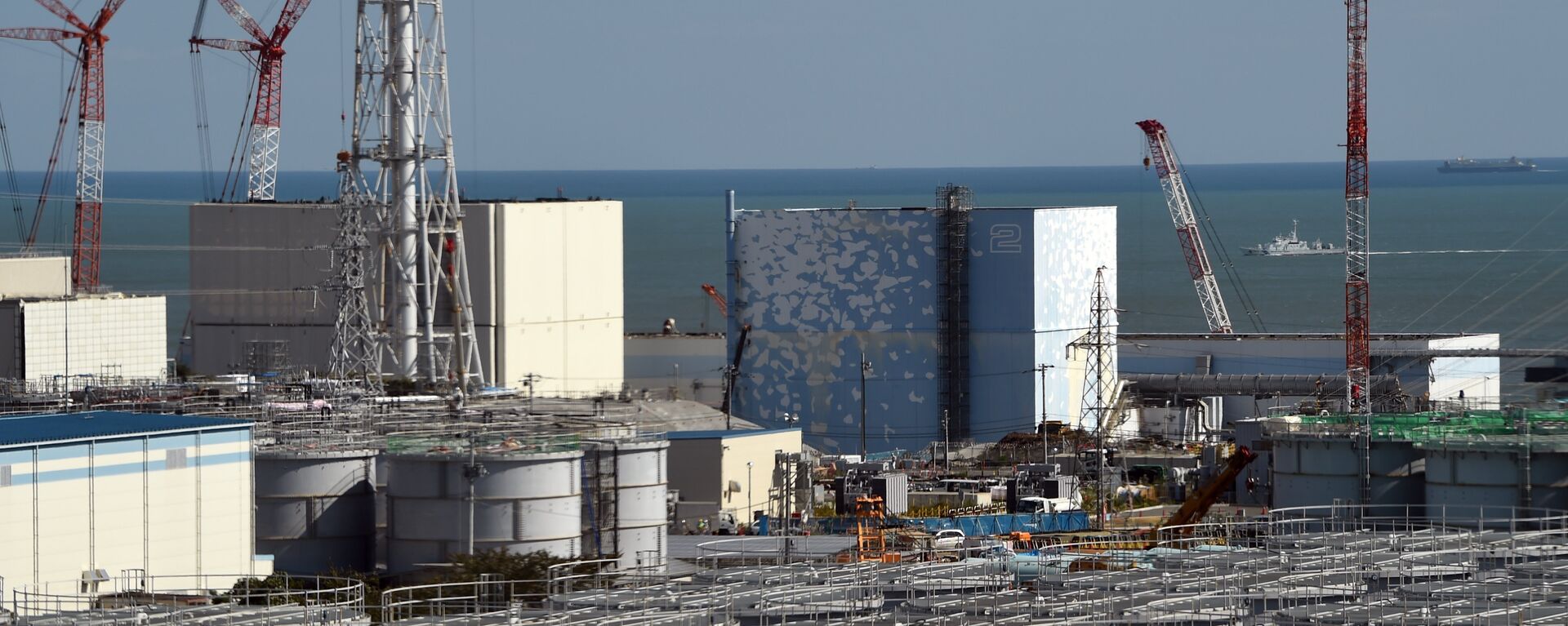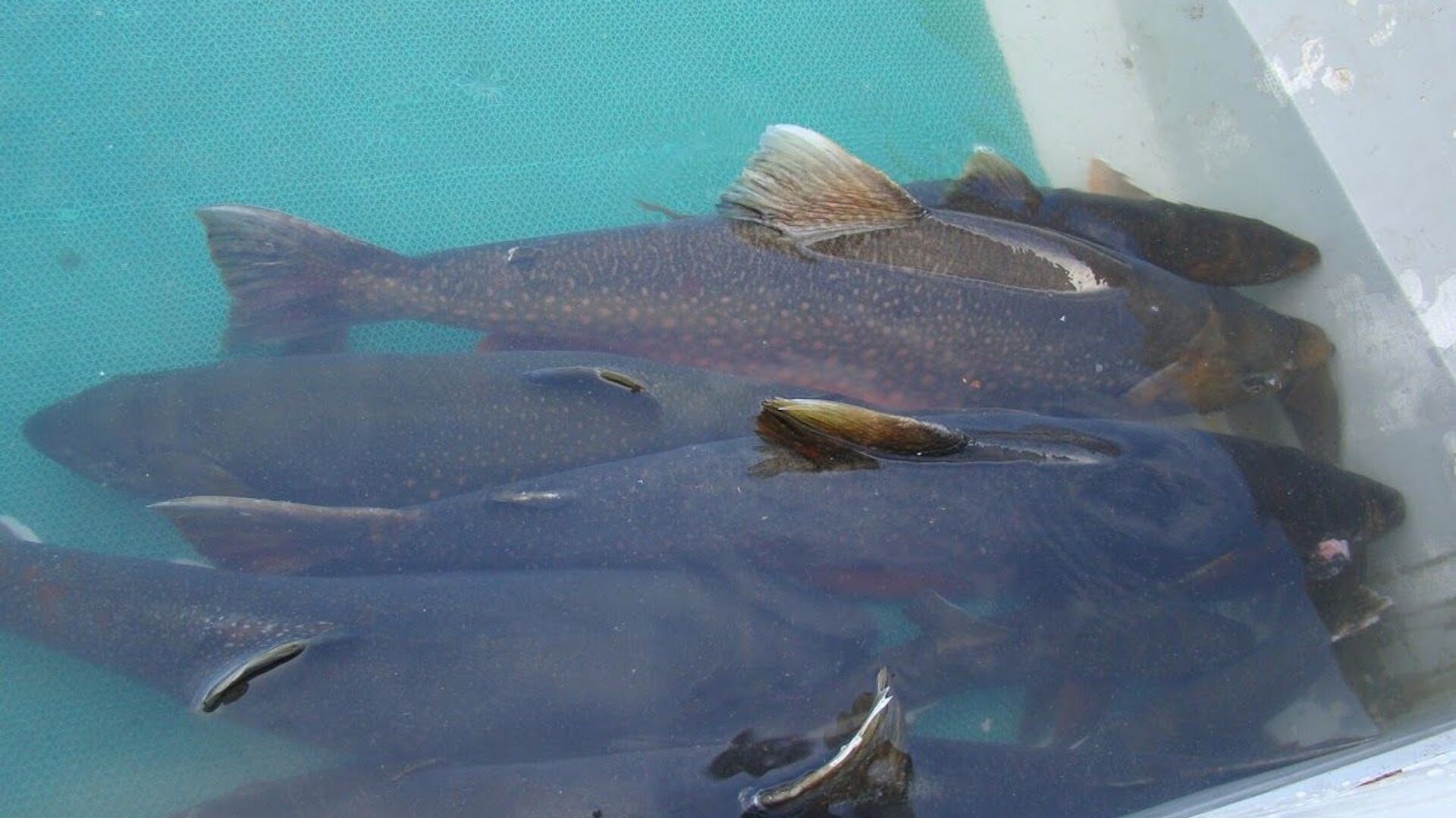https://sputnikglobe.com/20230831/indicators-of-fish-caught-in-russia-after-fukushima-water-discharge-within-norm-1113015074.html
Indicators of Fish Caught in Russia After Fukushima Water Discharge Within Norm
Indicators of Fish Caught in Russia After Fukushima Water Discharge Within Norm
Sputnik International
The analysis of over 440 batches of fish caught in Russia after the start of water discharge from the Fukushima nuclear power plant (NPP) in Japan have shown radiological indicators within permitted limits, the Russian Federal Service for Veterinary and Phytosanitary Surveillance (Rosselkhoznadzor) said on Thursday.
2023-08-31T11:14+0000
2023-08-31T11:14+0000
2023-08-31T11:14+0000
fish
russia
rosselkhoznadzor
fukushima
japan
2011 fukushima disaster
nuclear disaster
fukushima daiichi nuclear power plant
nuclear power plant
russia
https://cdn1.img.sputnikglobe.com/img/07e4/0b/0b/1081128019_0:102:1204:779_1920x0_80_0_0_42428abc28c67ff8b356936e75f11ae0.jpg
"In August, the Federal State Budgetary Institution 'Primorsky Interregional Veterinary Laboratory' subordinated to Rosselkhoznadzor conducted studies of 443 samples of different fishery products obtained in fishing subzones of several Russian regions. There were no positive results [of possible contamination]," the watchdog stated. In August, the Russian interregional laboratory conducted 1,272 tests of fish products including cod, flounder, halibut as well as minced meat, canned food, crab, shellfish and others, and increased control measures after Tokyo's decision to release treated water from the Fukushima NPP, the statement read. On August 24, Japan started dumping treated waste water from the nuclear plant into the Pacific Ocean, despite strong opposition from China and other countries in the region. Beijing responded by suspending Japanese seafood imports. Tokyo, for its part, vowed to use tools within the World Trade Organization rules to respond to the ban.
https://sputnikglobe.com/20230824/russian-watchdog-monitoring-fish-products-from-japan-says-no-contaminated-goods-allowed-1112849455.html
russia
fukushima
japan
Sputnik International
feedback@sputniknews.com
+74956456601
MIA „Rossiya Segodnya“
2023
Sputnik International
feedback@sputniknews.com
+74956456601
MIA „Rossiya Segodnya“
News
en_EN
Sputnik International
feedback@sputniknews.com
+74956456601
MIA „Rossiya Segodnya“
Sputnik International
feedback@sputniknews.com
+74956456601
MIA „Rossiya Segodnya“
fukushima nuclear power plant, water discharge, fukushima npp, tokyo electric power company, nuclear disaster, contaminated water, radioactive water, treated water, treated water discharge, radiological impact, radioactive contamination, tritium, fukushima wastewater, russian fish, fish in russia, polluted water
fukushima nuclear power plant, water discharge, fukushima npp, tokyo electric power company, nuclear disaster, contaminated water, radioactive water, treated water, treated water discharge, radiological impact, radioactive contamination, tritium, fukushima wastewater, russian fish, fish in russia, polluted water
Indicators of Fish Caught in Russia After Fukushima Water Discharge Within Norm
MOSCOW (Sputnik) - The analysis of over 440 batches of fish caught in Russia after the start of water discharge from the Fukushima nuclear power plant (NPP) in Japan have shown radiological indicators within permitted limits, the Russian Federal Service for Veterinary and Phytosanitary Surveillance (Rosselkhoznadzor) said on Thursday.
"In August, the Federal State Budgetary Institution 'Primorsky Interregional Veterinary Laboratory' subordinated to Rosselkhoznadzor conducted studies of 443 samples of different fishery products obtained in fishing subzones of several Russian regions. There were no positive results [of possible contamination]," the watchdog stated.
In August, the Russian interregional laboratory conducted 1,272 tests of fish products including cod, flounder, halibut as well as minced meat, canned food, crab, shellfish and others, and increased control measures after
Tokyo's decision to release treated water from the Fukushima NPP, the statement read.

24 August 2023, 11:42 GMT
On August 24,
Japan started dumping treated waste water from the nuclear plant into the Pacific Ocean, despite strong opposition from China and other countries in the region. Beijing responded by suspending Japanese seafood imports. Tokyo, for its part, vowed to use tools within the World Trade Organization rules to respond to the ban.



